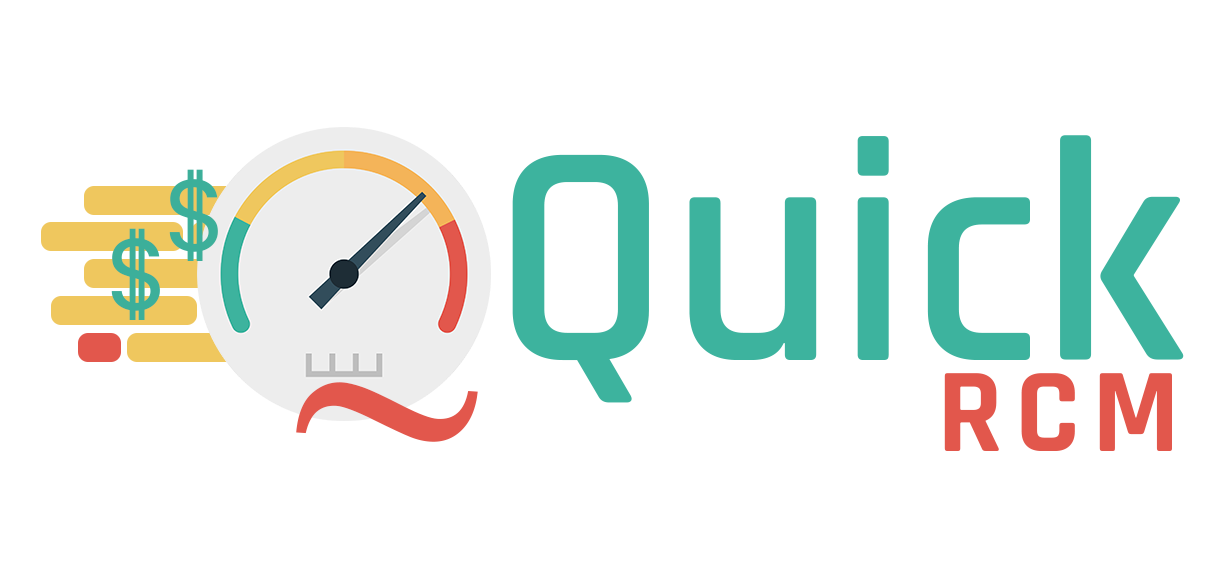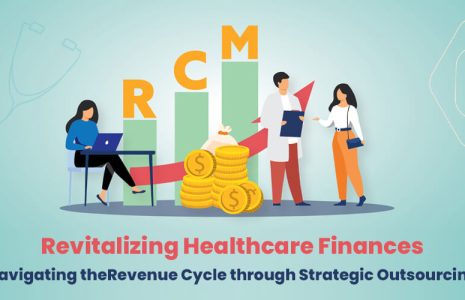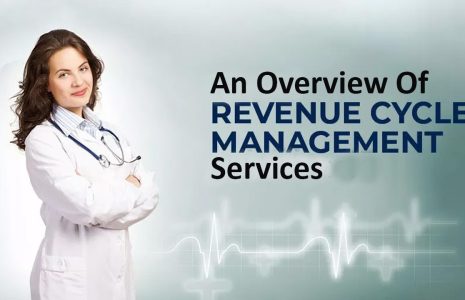Blog
Home / Blog
The revenue cycle functions as the complex procedure of generating invoices and securing payments for healthcare services. It stands as a multifaceted and time-intensive procedure, often posing challenges for healthcare organizations to manage efficiently in-house. This is where the significance of outsourcing the revenue cycle, often referred to as revenue cycle outsourcing (RCO), becomes apparent.
RCO involves the practice of enlisting a third-party entity to oversee some or all aspects of the revenue cycle, enabling healthcare organizations to redirect their focus towards other vital priorities, such as enhancing patient care.
Revenue Cycle Outsourcing (RCO) has many benefits:
1. Improved Operational Efficiency: RCO organizations with specific skills manage the revenue cycle better than in-house initiatives.
2. Cost-Efficiency: RCOs may offer cheaper services than healthcare facilities.
3. Accelerated Cash Flow: RCO firms accelerate payment collections, boosting healthcare entities’ cash flow.
4. Streamlined Compliance: RCOs help companies comply with complicated healthcare standards, reducing legal risks.
However, RCO adoption has hazards, such as:
1. Possible Control Loss: Leaving the revenue cycle to an outsider involves giving up some control. If the RCO disappoints, revenue management may be lost.
2. Data Security Issues: As healthcare companies outsource their revenue cycle, data protection is crucial. To reduce outsourcing risks, protect sensitive data against breaches or illegal access.
3. Communication Challenges: Communication lapses between healthcare organizations and RCO entities can lead to errors and delays in the revenue cycle process.
When considering the advantages and downsides, Revenue Cycle Outsourcing (RCO) is a viable alternative for healthcare institutions looking to improve revenue cycle management. Delegating revenue cycle tasks allows firms to streamline procedures, decrease operational hassles, and perhaps optimize financial results. The decision-making process should include a thorough evaluation of these risks and benefits.
In-House V/S Outsourced Revenue Cycle Management:
Healthcare organizations must choose between in-house and outsourced revenue cycle management.
Manage Revenue Cycle in-house:
Choosing in-house revenue cycle management means the healthcare organization manages all revenue cycle aspects inside. This involves billing, coding, and collections. This technique gives the company more control over its finances. The internal team can closely monitor and adapt tactics based on real-time data for targeted and responsive revenue management.
Autonomy costs. Managing the revenue cycle in-house requires time, resources, and experience. Healthcare firms must recruit and retain qualified workers, keep up with changing regulations, and invest in modern technologies to optimize the process. Revenue cycle management can complicate operations and distract from fundamental healthcare functions.
Revenue Cycle Management Outsourced:
Conversely, outsourced revenue cycle management entails working with outside experts or service providers to manage revenue cycle components. This strategy lets healthcare companies use revenue management experts. Outsourcing can improve operational efficiency, reduce costs, and provide access to cutting-edge technology without infrastructure construction.
Choosing the Right Approach:
The decision between in-house and outsourced management depends on factors such as the organization’s size, complexity, budget, expertise in revenue cycle management, and the willingness to cede control.
If uncertain, seeking advice from a specialist in revenue cycle management is advisable. They can help in assessing needs and formulating a strategy tailored to the organization.
Choosing a Company for Revenue Cycle Outsourcing: A Guide
Opting for outsourcing requires careful selection of a reputable company. Consider the following tips:
1. Explore Referrals: Gather suggestions from fellow healthcare organizations.
2. Perform Investigation: Evaluate various companies and their services.
3. Confirm Industry Proficiency: Validate the firm’s competence within the particular healthcare sector.
4. Document Everything: Ensure all aspects, including contract terms and conditions, are documented in writing.
By adhering to these guidelines, organizations can choose an RCO partner that enhances the efficiency and effectiveness of their revenue cycle, facilitating long-term financial success amidst the challenges of constrained hospital finances.
- Quick RCM
- November 29, 2023
Revenue Cycle Management (RCM) is a convoluted and intricate set of financial operations that seeks to streamline billing and collections. The purpose of RCM is to enhance efficiency and precision while reducing costs associated with these activities, ultimately leading to surge in revenue and customer satisfaction. Generally, RCM services are provided by an amalgamation of healthcare IT experts, financial professionals, and software providers who specialize in the field. To optimize RCM, healthcare organizations use a wide array of methods, such as the integration of electronic health records (EHRs), tailored billing and collections processes, and the utilization of analytics to monitor the effectiveness of their RCM efforts.
As healthcare organizations strive to improve their financial operations and bolster their revenue, RCM services are becoming increasingly sought after. With the rise of new technologies and regulatory standards, the need for efficient and accurate billing and collections processes has become paramount.
Advantages of RCM Services
RCM services can provide numerous advantages to healthcare organizations, such as enhanced precision and efficiency. By implementing RCM services, organizations can ensure that their billing and collections process adheres to all regulatory standards, reducing the possibility of errors and guaranteeing that payments are received in a timely manner. RCM services also provide access to the latest technologies, allowing organizations to maximize their potential for revenue and minimize the possibility of loss. This encompasses access to modern EHRs and other financial tools that can help organizations streamline their billing and collections process.
Furthermore, RCM services assist organizations in remaining compliant with applicable regulations, guaranteeing that their billing and collections process is current and secure, thus reducing the threat of legal repercussions and safeguarding the organization’s reputation. By utilizing RCM services, organizations can leverage the latest analytics and reporting tools to monitor the effectiveness of their billing and collections process, allowing them to identify areas for improvement, optimize their RCM efforts, and adapt to changes over time.
What to consider before hiring a RCM service provider
Before engaging the services of an RCM provider, healthcare organizations must contemplate several factors to guarantee they make the best choice. We will explore seven essential elements to keep in mind when selecting an RCM service provider.
The foremost consideration when selecting an RCM service provider is experience and expertise. Healthcare organizations must partner with RCM service providers who possess a proven track record of success and are familiar with the latest technologies and regulatory standards. It is crucial to find a provider with a team of healthcare IT experts, financial professionals, and software specialists who have a comprehensive understanding of the RCM field.
Another critical consideration is customization and scalability. Healthcare organizations are unique, necessitating RCM service providers who can customize their services to fulfill specific requirements. It is essential to ensure that the provider can scale its services to accommodate organizational growth and that they offer flexible solutions that can adapt to changes over time.
Lastly, technology and tools are critical components of RCM services. Healthcare organizations require access to the latest technologies and financial tools, such as electronic health records (EHRs) and analytics tools, to optimize their billing and collection process. To achieve financial objectives, it is necessary to verify that the provider employs cutting-edge technologies and tools.
In conclusion, RCM services are an intricate and complex set of financial operations that healthcare organizations leverage to streamline their billing and collections process. By employing RCM services, organizations can increase revenue, improve accuracy and efficiency, and enhance customer satisfaction. The use of RCM services also provides access to the latest technologies, ensures compliance with regulations, and provides improved analytics and reporting tools, making RCM services an invaluable resource for healthcare organizations.
- Quick RCM
- February 14, 2023


